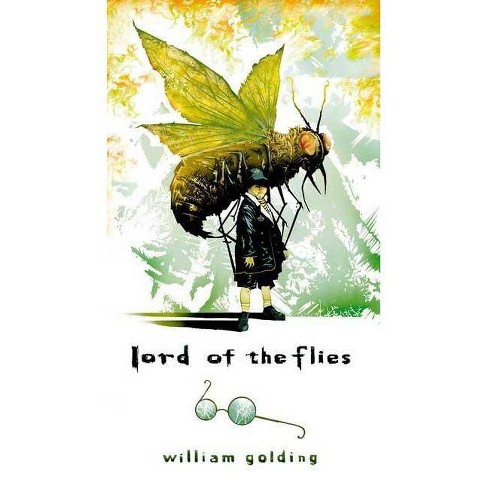
The Lord of the Flies was brutal. It began on a negative note and didn't seem to end any more positively. A large group of boys is stranded on an island off the grid. They are divided into two groups, led by two leaders by different visions for the island. Initially, the boys put their faith in Ralph as the leader. However, the tides turn halfway through the novel when Ralph can't seem to achieve the structure and order he envisions. The boys turn their faith to Jack, an original school prep who started with a small but aggressive group of believers.
Upon reading The Lord of the Flies, I think two particularly dominant themes arose to me, the first of which being the notion of leadership. Ralph is certainly more of a visionary leader, an idealistic one who appreciates order and obedience. He is a long-term thinker. Throughout the novel, Ralph repeatedly calls order to the group of boys to maintain the fire. Ralph knows that producing smoke with a fire is the only way to attract and notify a passing ship of stranded human life. He also organizes different units and shifts for guarding the fire while organizing other groups to forge for food. The problem arose when the order unraveled. The young kids guarding the fire couldn't see the long-term benefit of what they were doing so they let the fire die in exchange for some fun swim time in the ocean. The people in charge of gathering food also gave up, as did the team delegated to build the shelters.
This lack of order resulted in the turn of the leadership from Ralph to Jack. Jack figured out how to butcher pigs on the island, providing an additional nutrient that plants and fruits gathered by Ralph's teams couldn't fulfill. I think the short term state, hunger, affected the boys' faith in the leadership. They couldn't understand Ralph's goals in maintaining a fire so they turned to Jack, who could slaughter pigs and provide food, an immediate benefit. I believe this is similar to elections for leadership in this country. Often it's not the best leader or visionary who is chosen; more often than not it's the person who can produce immediate, short-term improvements. I suppose this shows a potentially fatal flaw in our system and psychology. Drawn to short term benefits, I think it's important to continuously reference the long-term goal. As I read in The Lord of the Flies, what ultimately rescues the boys from the island is a Navy ship attracted by the heavy smoke from a forest fire started by Jack on his manhunt to kill Ralph.
The second important theme I noticed in The Lord of the Flies is the idea of law and order and its power in keeping up sane and human. Towards the end of the book, Jack and his followers (which was just about everyone except for a two people) had turned barbarous. They killed people, didn't wear clothing, and resolved to solve none of their problems on the island. All the while, Ralph was hiding out in the forest, he said:
"This was a savage whose image refused to blend with that ancient picture of a boy in shorts and a shirt" (165).
It seems that Golding is pointing to the pertinence of law and order. He suggests that it keeps us human, it maintains the divide between us and the animal world. It's a powerful statement and had the Navy not rescued the boys after Jack started the forest fire, they would have probably turned corrupt and murdered Ralph.
------------------------
The Lord of the Flies was a wonderful read. It was short, took me merely 4 days to finish. Yet it touches upon so many fundamental elements of humanity such as leadership and law. I think it's one of those stories with such vivid descriptions and a plot so unparalleled and sole that I have no doubt it will remain in my mind long after I've read it.
No comments:
Post a Comment